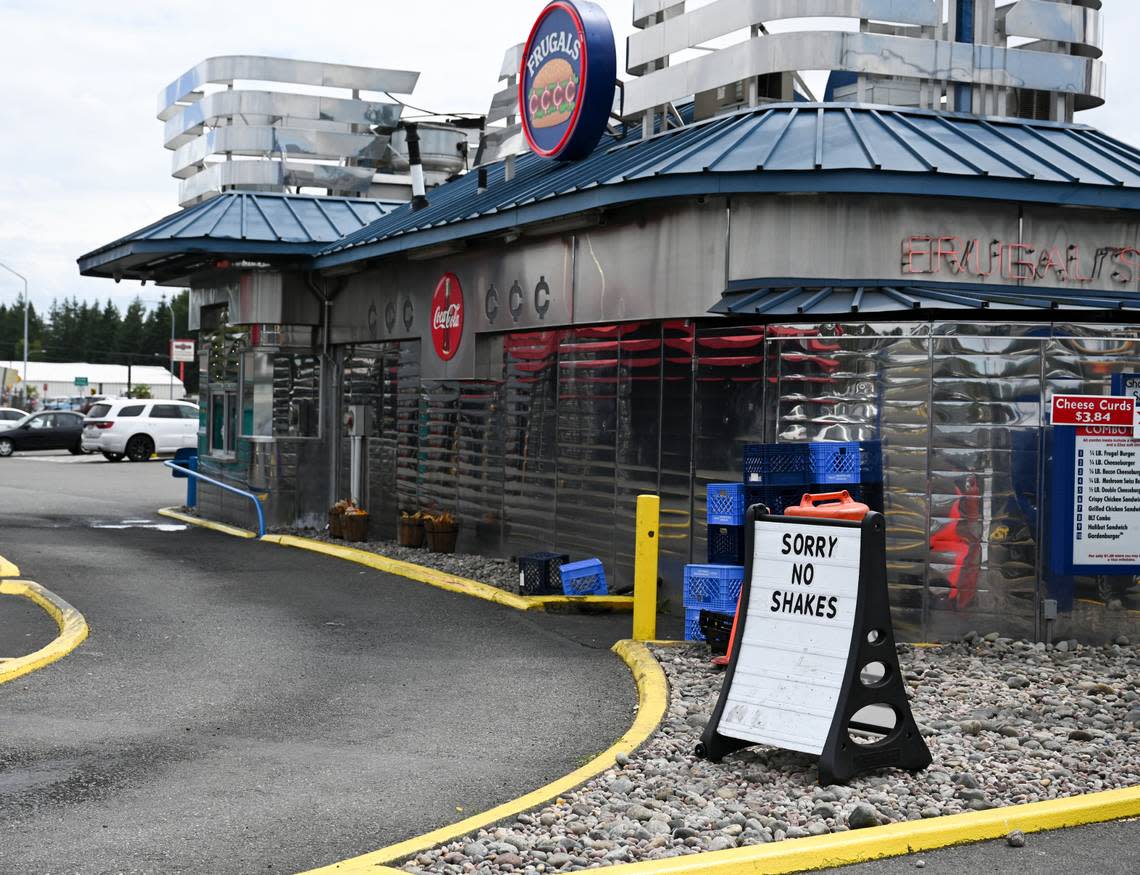Thurston County food safety inspectors do not regularly check for listeria. Here’s why

Thurston County health inspectors do not routinely check local food establishments for listeria, a bacteria that has been linked to a deadly outbreak in Pierce County.
Six customers of a Frugals in Tacoma, including a Thurston County resident, developed severe illness after being infected by listeria between Feb. 27 and July 22. Three of them died.
In light of that outbreak, The Olympian asked Thurston County Public Health and Social Services officials whether health inspectors could find listeria during routine inspections at local restaurants and how the department would handle an outbreak.
Al Quiocho, an PHSS environmental health specialist, said inspectors would only check for listeria at a food establishment if there’s reason to suspect people may have been infected there.
“It’s not a pathogen that occurs on a frequent basis,” Quiocho said. “That’s just not something we look for on a regular basis for a facility inspection.”
There are typically 10-25 cases of listeriosis, an infection caused by listeria, reported each year in Washington state, according to the state Department of Health.
Most people who consume listeria-contaminated food do not get seriously sick, but DOH warns that people who are pregnant, age 65 or older and those with weakened immune systems are especially at risk for severe illness.
“Our environmental health staff, they work to equip restaurants with the tools and documentation that they need to maintain proper hygiene and maintain standards so that these issues don’t arise in the future,” said PHSS spokesperson Renae Miller.
Healthcare providers are required to alert PHSS when a patient is diagnosed with a listeria infection, Miller said. From there, she said the county’s communicable disease response team would investigate how and where the person was infected.
Testing for listeria requires multiple environmental samples to be taken at various points throughout an establishment, Miller said. These samples would then be sent to a laboratory for testing, she added.
The nature of the bacteria can complicate matters as well. Quiocho said the bacteria is very tolerant of cold temperatures. When it establishes itself in a piece of equipment, Quiocho said it forms a biofilm that’s difficult to see and remove.
“There has to be actual physical cleaning, physical action taking place like with a scrub brush to break apart that biofilm,” Quiocho said. “Then, any remaining bacteria are taken care of with sanitizer.”
Investigators began checking the Frugals in Tacoma on Aug. 8, The News Tribune reported. Ten days later, they confirmed the outbreak resulted from listeria that contaminated Frugals’ milkshake machines.
In a statement to The News Tribune, Frugals said staff at the Tacoma location did not correctly follow the manufacturer’s prescribed cleaning procedures.
Scrub sponges were used in place of scrub brushes to clean and sanitize the machine, according to the company. This process was reportedly done once a week outside business hours and was not reviewed as part of the city health department’s routine inspections.
Notably, the News Tribune found a routine April 17 inspection did not detect listeria in Frugals’ milkshake machines.
The Olympian asked Thurston County PHSS if its inspectors could at least verify if a manufacturer’s prescribed cleaning regime is being followed correctly.
Quiocho said it would not be feasible for inspectors to verify all the different procedures for each piece of equipment being used.
“It can vary from manufacturer and the piece of equipment that they produce is going to be different in their design,” Quiocho said.
Inspectors do check whether food establishments are keeping track of who cleans equipment and when as well as whether workers are following various cold-holding requirements, Miller said.
Restaurants also are required to date many cold-held products to limit their shelf life to seven days, according to Washington State Administrative Food Code 246-15. This requirement was added in 2022 specifically to combat listeria, Miller said.
“Following these requirements, in addition to practicing good hygiene and sanitization procedures, will greatly reduce the risk of listeria originating in the food establishment,” Miller said.
If listeria were found at a food establishment in Thurston County, Miller said the county would direct the establishment to stop using the affected equipment until the situation was resolved.
Miller added the county would issue a news release and notify the public via its website and social media as well.
An eatery could be closed if inspectors find enough safety concerns to warrant one, Quiocho said. In that case, he said the establishment would have to correct every violation before it could reopen.

